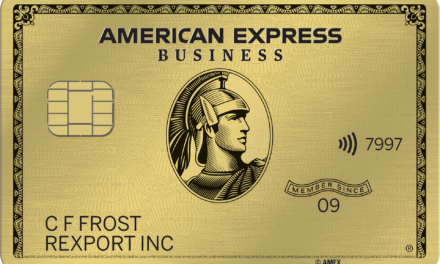Young adults often find themselves wanting to travel but they often don’t have the money to do so. Many of them also don’t have a high enough credit score. Collecting points and miles for discounted or free travel is the best solution for all these problems. The catch is that you need good credit to acquire some of the best travel cards to facilitate traveling. This post is about why you should build credit at a young age.
Why Is Building Credit So Important?
Positive credit history is not just useful for buying things. It’s also vital for some of life’s biggest milestones. You need good credit to get a car loan, to purchase a cell phone, and to get a mortgage or apartment rental. Sometimes, potential employers might look at your credit report to learn about how trustworthy you are.
But the name of the game is travel and excellent credit could get you traveling faster. With great credit, you can acquire some of the best travel cards in the industry. And these cards will earn you loads of value if you use them responsibly.
Travel can be for leisure or business purposes. Some young adults might get a job that requires them to travel often. And having a great travel card can save them time, stress, and money. These same reasons apply for leisure travel. Who wants to be stressed out when they’re on vacation?
Student Loans: The First Building Block
Student loans are oftentimes the first building block of a positive credit history. Many new high school graduates take out student loans to help pay for college just before starting their first year. Any loans taken out appear on your credit report. Many of these loans do not have to be paid back until you graduate from college or one semester after dropping out. However, any payment history for these loans will raise your credit score and establish positive history.
Getting Your First Credit Card
This section explains how to choose, get, and use your first credit card. These steps are vital for young adults to travel and smoothly go through some of life’s biggest milestones.
Choosing A Card
Having a sound strategy and objective is vital in building credit. Ask yourself “What is your purpose for getting a credit card?”. Oftentimes, free and discounted travel is the answer. But everyone is different. Therefore, you should look into some of the best credit cards for beginners for some card suggestions.
According to Experian (one of the three major credit bureaus),
College students, especially those over 21, are often considered prime customers because they are likely to be financially successful and have proven to be loyal customers over long periods of time. As a student, you may receive a variety of offers.
College and graduate students are also eligible for student credit cards. These cards are often easier to get approved for because their underwriting credentials are relaxed. The income requirement is also much lower than regular cards. For example, the Discover It Student Card has a minimum annual income requirement of just $2,500. You can also use grants and scholarships that do not have to be repaid as income with Discover. However, not all issuers let students use such grants.
Make sure to go through every offer you receive before deciding. Be sure to do research on the card offered and the issuer. Not all credit card issuers are the same and knowing about their quirks can help you decide on a card. Creating a transferrable points strategy is vital for aspiring travelers to get traveling faster and more efficiently. Earning the wrong type of points is worthless (or worth less) if you can’t redeem them.
Applying For the Card
This is the next step once you have decided on a card. Try to find referral links online or ask a friend or family member with the card you want to send their link. For example, all Discover cardholders can refer a friend to apply for a Discover card. Discover will give you and your friend a $50 cash back bonus if you get approved.
Click on the referral link and you will be taken to a credit application page. Always tell the truth about your personal information and income. Just follow the steps and you will receive a decision within 30 seconds. There are generally three possible outcomes: automatic denial, automatic approval, or a pending decision. Automatic approval will give you a congratulatory message, your credit limit, and your APR (interest rate). And automatic denial will simply let you know that you have been denied.
Pending Decisions
A pending message will state that the issuer needs anywhere from seven to 30 days before deciding. Look up the issuer’s customer service number and call it if you see a message like this. Let the customer service rep know that you just applied for a card and received a pending message.
The customer service rep will ask you some more questions about your income or credit history. Those answers will give the rep more information to make a decision. The decision will either be an approval or a denial.
If you are denied, you should try again in six months. Otherwise, congratulations and keep reading.
Using Your Card
Once you are approved for a credit card, the aim is to figure out how to use it responsibly. Some young adults are credit averse whereas others want to use their new card for everything.
The former group could simply use their card once per month for a small expense and pay off the card immediately. This is the easiest way to build credit history quickly.
However, the latter group must be aware of how much money they have in the bank. People in this group must be diligent and remember that cards should be paid in full monthly. Do not buy something if you don’t have the money to pay for it. All rewards earned are negated by interest charges, late fees, and other avoidable fees when you do not pay your card in full. This does not include annual fees for travel cards because those cards have perks that offset the annual fee when used.
Furthermore, many cards come with sign-up bonuses. These bonuses provide short-term value by spending a certain amount within a certain time period. For example, the Chase Freedom Unlimited comes with a bonus worth $150 (or 15,000 Chase Ultimate Rewards points). This bonus can be earned by spending $500 within the first three months of holding the card. Be mindful of sign-up bonuses by making sure you can earn them before applying for a card. This is a huge lesson that will stay with you throughout your adulthood.
Final Draw
This post answers why you should build credit at a young age. It also answers how to do it step by step. Parents should show this post (and this blog) to their teenage and young adult children. It could be a great resource for them to establish credit while increasing their interest in travel.




